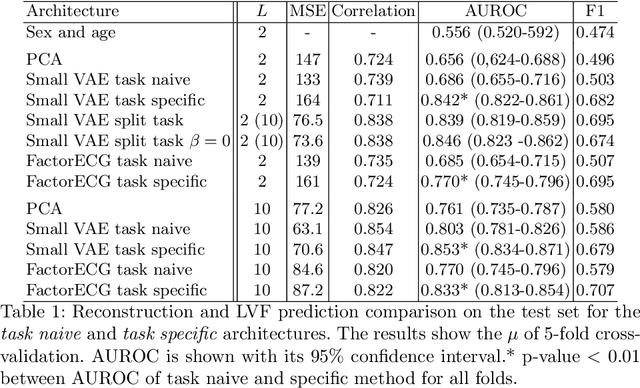Joint optimization of a $β$-VAE for ECG task-specific feature extraction
Paper and Code
Mar 28, 2023



Electrocardiography is the most common method to investigate the condition of the heart through the observation of cardiac rhythm and electrical activity, for both diagnosis and monitoring purposes. Analysis of electrocardiograms (ECGs) is commonly performed through the investigation of specific patterns, which are visually recognizable by trained physicians and are known to reflect cardiac (dis)function. In this work we study the use of $\beta$-variational autoencoders (VAEs) as an explainable feature extractor, and improve on its predictive capacities by jointly optimizing signal reconstruction and cardiac function prediction. The extracted features are then used for cardiac function prediction using logistic regression. The method is trained and tested on data from 7255 patients, who were treated for acute coronary syndrome at the Leiden University Medical Center between 2010 and 2021. The results show that our method significantly improved prediction and explainability compared to a vanilla $\beta$-VAE, while still yielding similar reconstruction performance.
 Add to Chrome
Add to Chrome Add to Firefox
Add to Firefox Add to Edge
Add to Edge